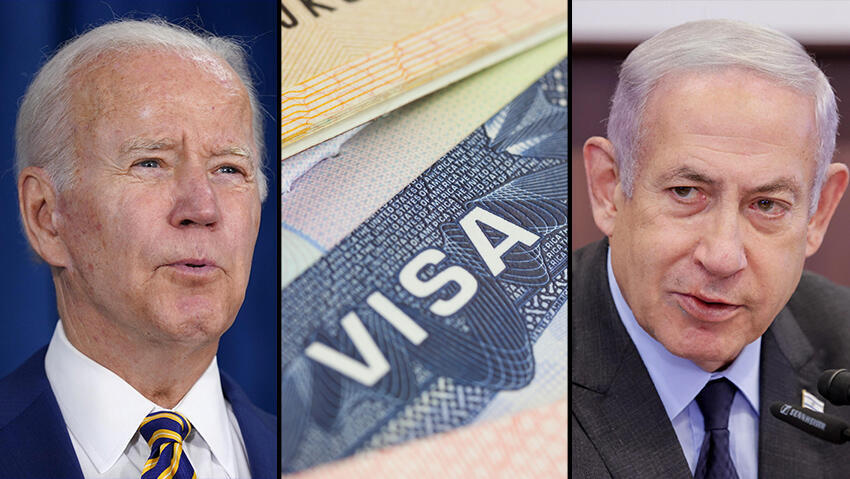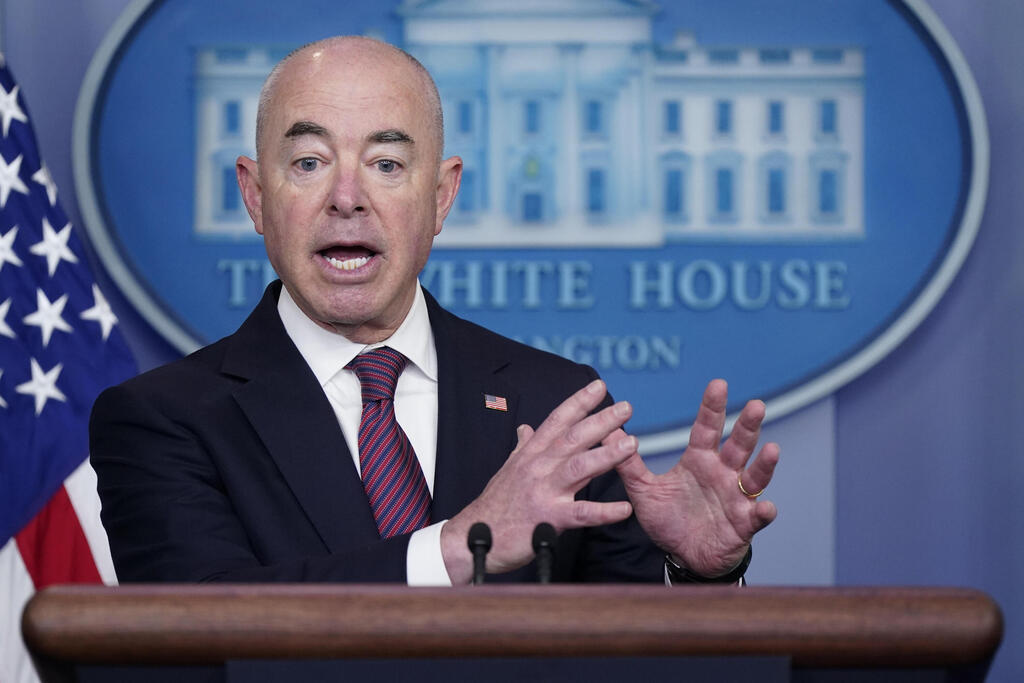Getting your Trinity Audio player ready...
U.S. Homeland Security and the State Department delegations will arrive in Jerusalem on July 30 to assess whether Israel meets the criteria for joining the U.S. Visa Waiver Program.
Read more:
The group is expected to publish a report next month summarizing Israel's candidacy, but it’s still unclear whether the Jewish state will be featured on the exclusive list.
3 View gallery


U.S. President Joe Biden and Prime Minister Benjamin Netanyahu
(Photo: AP, Shutterstock, Marc Israel Sellem)
The report is due by the end of the month and requires U.S. Secretary of State Antony Blinken’s signature to approve Israel's acceptance into the program. A month later, between September 20 and 30, Secretary of Homeland Security Alejandro Mayorkas is likely to sign the declaration of Israel's inclusion.
On the surface, it appears that Israel meets all criteria, but the problem primarily lies in the political arena. There is concern in Jerusalem that Washington officials would block the process at the last moment and argue that it may not be the right time to hand such an achievement to Prime Minister Benjamin Netanyahu as ties between the countries are strained, partly due to settlement construction and the advancement of the government’s plan to overhaul judiciary.
Before President Isaac Herzog is set to depart for Washington Monday night, U.S. President Joe Biden spoke to Netanyahu for the first time in four months to discuss the legal plan.
Israeli officials are worried that senior members of the Biden administration will attempt to block Israel’s ascension to the program under the guise of professional considerations, such as allegations of discrimination against American citizens of Palestinian origin.
Outgoing U.S. Ambassador Tom Nides told Ynet and its sister publication Yedioth Ahronoth that while most of the process has been concluded, he still cannot guarantee Israel’s inclusion in the program.
Meanwhile, the United States will test Palestinian Americans' freedom of travel in Israel in the coming days as a critical stage of the proposed U.S. visa exemptions for Israelis. What remains is to demonstrate reciprocal access for Palestinian Americans at Israel's borders and to the West Bank.
Until now, Palestinians, regardless of any other citizenship they hold, were required to enter and exit the West Bank through Jordan (except for around 30,000 Palestinians annually permitted to fly to the United States for humanitarian reasons).
Israel and the United States are in the advanced stages of finalizing the last details of the process, with the involvement of the Shin Bet security agency to ensure that Americans entering through Ben Gurion Airport do not pose a security threat and are not discriminated against.
Both countries must complete all preparations by September 30 and receive the green light for implementing the program starting October 1. If Israel fails to meet the criteria, it will be excluded from the current program, and the process will start anew, including the requirement to maintain a visa refusal rate of less than 3%. In such a scenario, the next opportunity for Israel to benefit from the waiver would be in October 2025.
Earlier this month, Washington and Jerusalem cleared a major hurdle when they reached an agreement that allows the United States to make inquiries about the criminal records of up to two thousand Israelis per year (one thousand for the Department of Homeland Security and an additional thousand for the FBI) - with an option to increase the number in a few years.
Senior Israeli officials involved in the process noted that the remaining tasks are highly complex. "There are endless details," they said, "It is clear to Israel that the Americans will still find some 'glitches,' and there will be time to address them. The Americans have been here, and they are well aware of the significant progress made in Israel, and they are quite satisfied."
In recent weeks, there have been efforts to integrate various computer systems with American systems. The police have already begun training the system to respond to American inquiries regarding the criminal records of Israelis who wish to travel to the United States and may raise suspicion.




